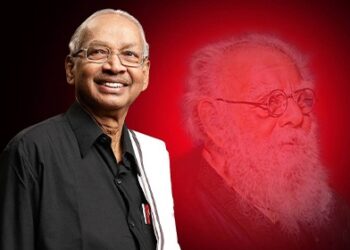Gyanvapi Mosque, Varanasi
Recently news spread that there are evidences at the site where Gyanvapi mosque is located in Varanasi in Uttar Pradesh that there are remnants of Hindu identities. The so called religious identities are said to have been pointed out in the report of Archaeological Survey of India (ASI) on which the Hindu religious organisations make appeals for the handover of the mosque. On the other side, the Muslim organisations have clarified that the idol like identities are nothing but worn out dolls thrown out by the merchants beside the mosque who had vacated their business premises a few years back. Besides it is said that the report of the Archaeological Survey of India is not the verdict of the judiciary. Originally the litigation was initiated by 5 Hindu women on noticing Hindu worshipping carved on the wall.
If litigations or disputes are started like this, where is the end for it? It will affect the social harmony among the people of different faiths. Anticipating all these happenings in future the Parliament enacted the Places of Worship (Special Provisions) Act in 1991. The Act provides a guarantee for the preservation of the religious character of places of public worship as they existed on the day of country’s independence i.e. 15th August 1947. But the effect of the Act was not there in respect of the demolition of Babri Masjid in 1992 and the construction of a temple on the site. The litigation was dealt by the apex court of the country. Though the Court observed that the demolition of the Masjid was a criminal act, finally it delivered verdict to build a temple at the same site. Whatever be the rationale behind it, the apex court’s verdict had to be respected and accordingly a temple was built and the consecration was also performed recently.
The exemption given to the implementation of the 1991 Act is over. Now the provisions of the Act must be respected by the rule of law. The five-judge Constitution Bench in the Ramjanma boomi verdict observed that the 1991 Act was an affirmation of the solemn duty of the State to preserve equality of all faiths. The Act was the manifestation of an essential Constitutional value. Now certain provisions of the 1991 Act have been challenged in the Supreme Court by filing PIL petitions. On the Union Government side also it seems the argument is in favour of the challenge. Any Act enacted by the Parliament has to be respected by any party that comes to rule. Any amendment required in the Act must be entertained by the due legislative process in the Parliament.
The public perception itself is against the survey conducted by ASI and considered a violation of the ‘Places of Worship Act’. The Union Government led by BJP must be secular, neutral and non-religious, more than being supportive to the already enacted 1991 Act. The deliberate move on the part of Union Government to weaken the provisions of the Act is not good for the well-being of the people, peace and harmony in the country. Peace loving citizens of our country must not mistake that the 1991 Act has become a dead letter! It is their expectation from the apex court that the litigation about the worshipping sites must end. The five-judge Constitution bench had already pointed out the agreed remarks made by one of the Parliamentarians with the cut-off date of 15th August 1947, thus:
“It is because on that date we are supposed to have emerged as a modern, democratic and sovereign state… From that date, we also distinguished ourselves as a state which has no official religion and which gives equal rights to all the different religious denominations”.
It must be pertinent to emphasise that the country belongs not only to the believers of different faiths but also to the non-believers of any of the faiths. Humanists and harmony loving people living happily amidst different individual faiths are also the citizens of the country. We appeal to the Supreme judiciary to reckon the feelings of these non-believers who love peace and nothing else!
Stop-Press: As per the latest report the Varanasi District court has allowed Hindu puja to be offered inside the sealed basement of the Gyanvapi mosque complex. Court has directed the District administration to make arrangements to start the puja within seven days.
In respect of the 1991 Act, already a writ petition is being heard in the Supreme Court. In the Allahabad High Court, the Mosque committee has already challenged the Varanasi district judge’s order refusing to direct the ASI to conduct a scientific survey of the area of mosque.









